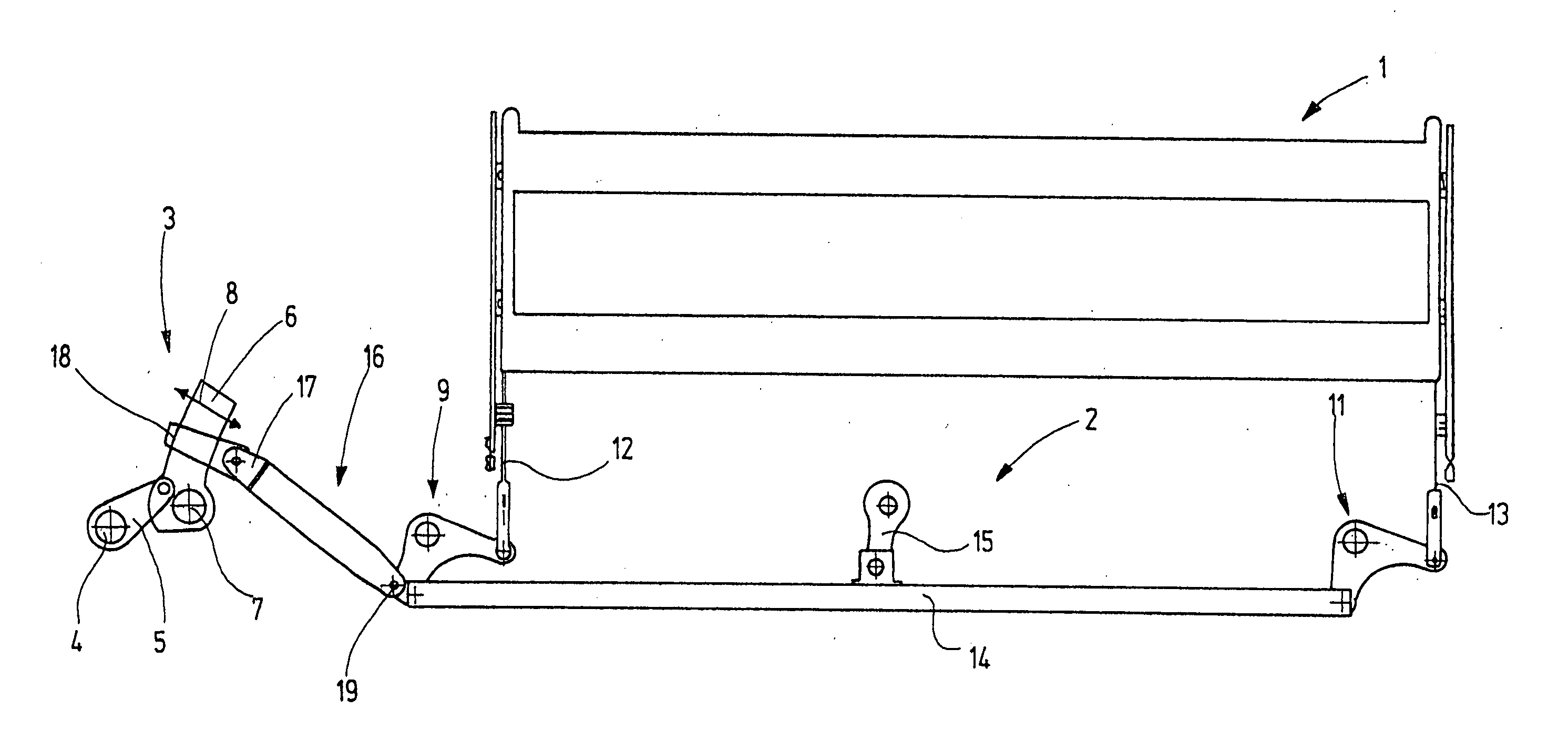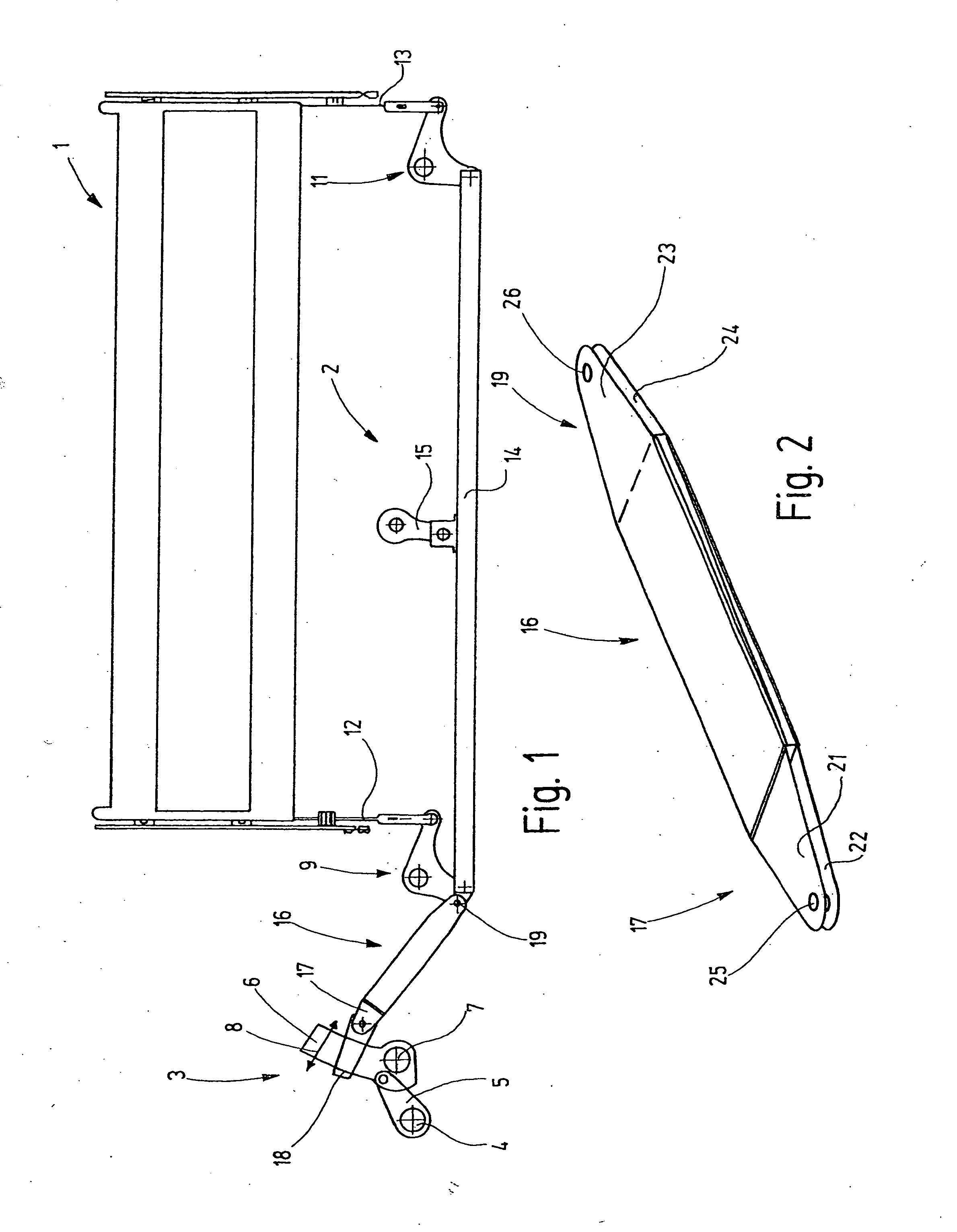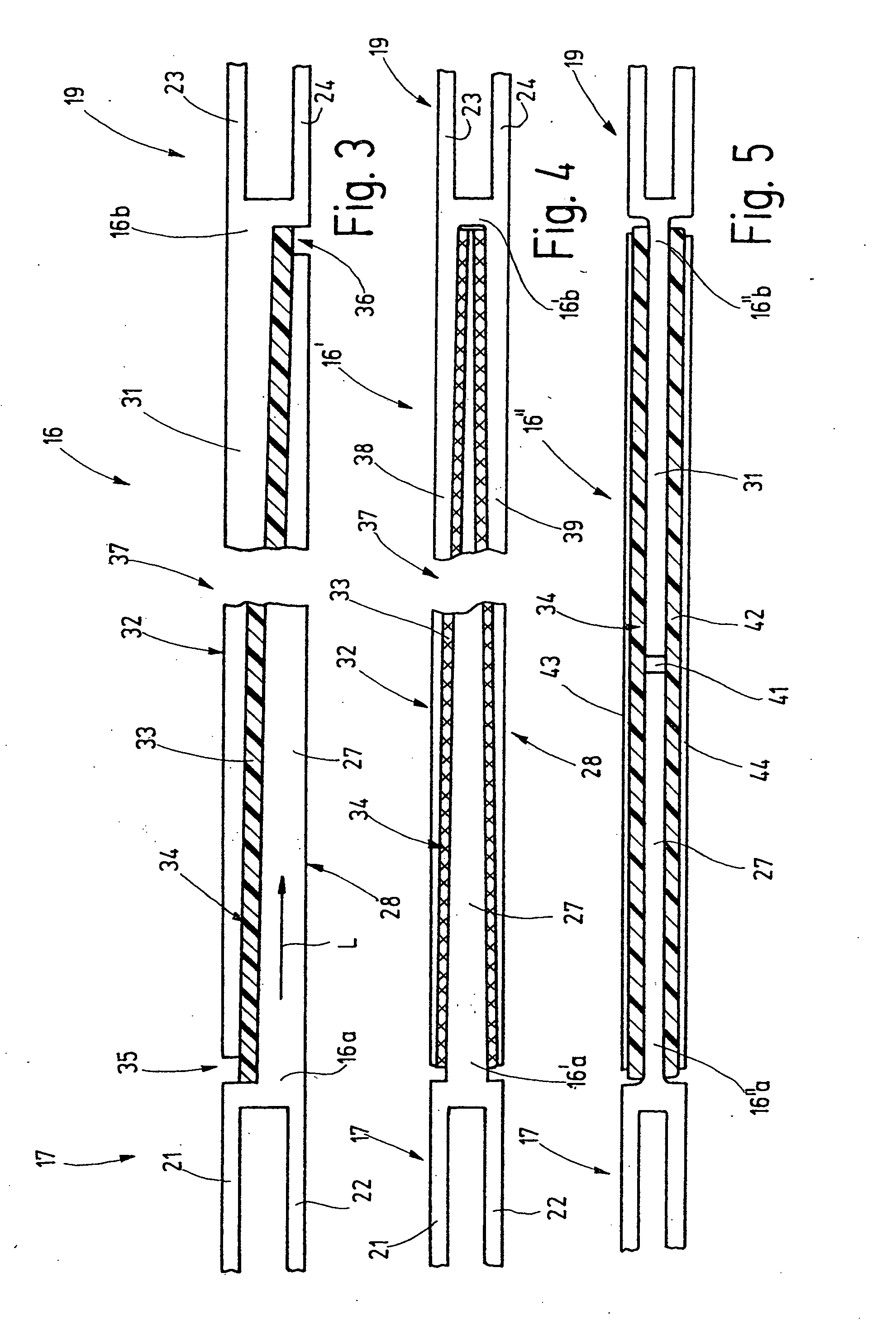Low-vibration shedding system
a shedding system and low vibration technology, applied in the field of systems, can solve the problems of shedding system and associated mechanism vibration, load on all elements, and inability to fully exploit the potential, and achieve the effects of good oscillation absorption, high axial rigidity, and good oscillation absorption properties
- Summary
- Abstract
- Description
- Claims
- Application Information
AI Technical Summary
Benefits of technology
Problems solved by technology
Method used
Image
Examples
Embodiment Construction
[0030] In FIG. 1, a heddle shaft 1 is shown, which for shedding purposes is disposed on a power loom, not otherwise shown, and is driven via a rod linkage 2 by a shaft machine 3. The shaft machine 3 is for instance an eccentric machine having an eccentric 4, which via a connecting rod 5 drives a sword 6, serving as a power takeoff mechanism, back and forth. The sword 6 is pivotably supported about a center of pivoting 7. Its pivoting motion is represented in FIG. 1 by an arrow 8.
[0031] The rod linkage 2 serving to transmit the reciprocating pivoting motion of the sword 6 to the heddle shaft 1 includes, in the present exemplary embodiment, at least two pivotably supported bell crank levers 9, 11, which are joined to the heddle shaft 1 via tension and pressure rods 12, 13 in order to move the heddle shaft up and down. The lower arms of the bell crank levers 9, 11 are joined to one another by a connecting bar 14, which is pivotably connected to the respective arms of the bell crank le...
PUM
| Property | Measurement | Unit |
|---|---|---|
| Thickness | aaaaa | aaaaa |
Abstract
Description
Claims
Application Information
 Login to View More
Login to View More - R&D
- Intellectual Property
- Life Sciences
- Materials
- Tech Scout
- Unparalleled Data Quality
- Higher Quality Content
- 60% Fewer Hallucinations
Browse by: Latest US Patents, China's latest patents, Technical Efficacy Thesaurus, Application Domain, Technology Topic, Popular Technical Reports.
© 2025 PatSnap. All rights reserved.Legal|Privacy policy|Modern Slavery Act Transparency Statement|Sitemap|About US| Contact US: help@patsnap.com



